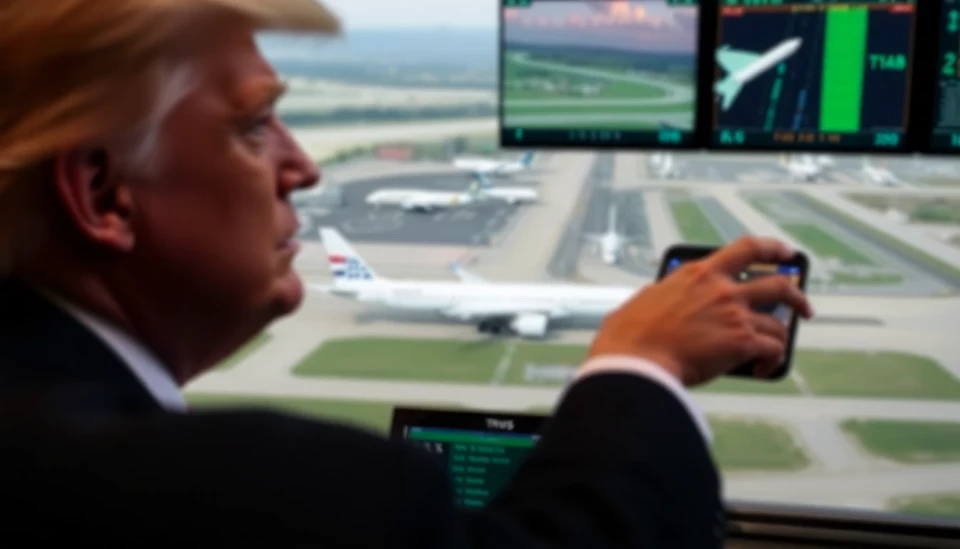
In a bold move to modernize the United States' aviation infrastructure, former President Donald Trump has announced plans to urge Congress to significantly upgrade the nation's air traffic control system. This proposition is expected to enhance safety, efficiency, and the overall experience for millions of passengers traveling through U.S. airspace.
According to sources close to Trump, the proposal aims to shift the air traffic control operations from government oversight to a private entity or a public-private partnership. This model, proponents argue, could lead to increased innovation and investment in technologies necessary to streamline air travel. Trump reportedly believes that such a transformation will not only address operational challenges but also foster a competitive environment that prioritizes passenger satisfaction.
Advocates of this initiative emphasize the urgency of modernizing the air traffic control system, which has faced scrutiny for lagging behind technological advancements compared to systems used in other countries. As air travel demand continues to rise, experts warn that without significant updates, the U.S. risks congestion and potential safety issues in its busy airspace.
The announcement comes in light of recent reports highlighting delays and inefficiencies in air travel nationally, prompting many to call for immediate reforms. Trump’s plan aligns with long-standing discussions among lawmakers, aviation authorities, and industry stakeholders about the need for a more adaptable and modernized air traffic management system.
In his upcoming address to Congress, Trump is expected to outline the specific challenges currently plaguing the air traffic control system, including outdated technology, limited capacity, and the potential risks posed by these vulnerabilities. He will advocate for a collaborative approach, urging bipartisan support to navigate the legislative complexities surrounding such a significant overhaul.
This proposal comes at a time when Trump continues to maintain a solid base of supporters who view modern infrastructure as critical to America's future economic growth and competitiveness on a global scale. The former president is counting on this infrastructure focus to rally additional support as he prepares for the upcoming presidential campaign.
Responses to Trump’s announcement have been mixed. Supporters hail it as a necessary step towards restoring America's leadership in aviation technology, while critics caution that privatizing air traffic control could lead to commercial interests overshadowing the public’s need for safety and access to air travel. They stress that any privatization efforts must include strong regulatory frameworks to protect consumers and ensure transparency.
As the debate intensifies, stakeholders from various sectors, including airlines, pilots’ unions, and aviation safety advocates, will likely weigh in on the conversation. The outcome of this proposal could have far-reaching implications not only for the aviation industry but also for travelers who rely on a reliable and efficient air travel system.
As the nation eagerly awaits Trump’s congressional testimony, many eyes will be focused on how this proposal unfolds and whether it can gather the necessary momentum amidst a politically charged environment. With air travel being an essential mode of transport for millions, the stakes are undeniably high.
#Trump #AirTrafficControl #AviationReform #Modernization #Infrastructure #Congress #Privatization #Transportation #Safety #Innovation
Author: Victoria Adams




